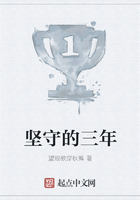Where one has the time and the money to devote to the collection of missals and illuminated books, the avocation must be a very delightful one. I never look upon a missal or upon a bit of antique illumination that I do not invest that object with a certain poetic romance, and I picture to myself long lines of monkish men bending over their tasks, and applying themselves with pious enthusiasm thereto. We should not flatter ourselves that the enjoyment of the delights of bibliomania was reserved to one time and generation; a greater than any of us lived many centuries ago, and went his bibliomaniacal way, gathering together treasures from every quarter, and diffusing every where a veneration and love for books.
Richard de Bury was the king, if not the father, of bibliomaniacs; his immortal work reveals to us that long before the invention of printing men were tormented and enraptured by those very same desires, envies, jealousies, greeds, enthusiasms, and passions which possess and control bibliomaniacs at the present time. That vanity was sometimes the controlling passion with the early collectors is evidenced in a passage in Barclay's satire, ``The Ship of Fools''; there are the stanzas which apply so neatly to certain people I know that sometimes I actually suspect that Barclay's prophetic eye must have had these nineteenth-century charlatans in view.
But yet I have them in great reverence And honor, saving them from filth and ordure By often brushing and much diligence.
Full goodly bound in pleasant coverture Of damask, satin, or else of velvet pure, I keep them sure, fearing lest they should be lost, For in them is the cunning wherein I me boast.
But if it fortune that any learned man Within my house fall to disputation, I draw the curtains to show my books them, That they of my cunning should make probation;I love not to fall into altercation, And while they come, my books I turn and wind, For all is in them, and nothing in my mind.
Richard de Bury had exceptional opportunities for gratifying his bibliomaniac passions. He was chancellor and treasurer of Edward III., and his official position gained him access to public and private libraries and to the society of literary men. Moreover, when it became known that he was fond of such things, people from every quarter sent him and brought him old books; it may be that they hoped in this wise to court his official favor, or perhaps they were prompted by the less selfish motive of gladdening the bibliomaniac soul.
``The flying fame of our love,'' says de Bury, ``had already spread in all directions, and it was reported not only that we had a longing desire for books, and especially for old ones, but that any one could more easily obtain our favors by quartos than by money. Wherefore, when supported by the bounty of the aforesaid prince of worthy memory, we were enabled to oppose or advance, to appoint or to discharge; crazy quartos and tottering folios, precious however in our sight as in our affections, flowed in most rapidly from the great and the small, instead of new year's gifts and remunerations, and instead of presents and jewels. Then the cabinets of the most noble monasteries were opened, cases were unlocked, caskets were unclasped, and sleeping volumes which had slumbered for long ages in their sepulchres were roused up, and those that lay hid in dark places were overwhelmed with the rays of a new light. Among these, as time served, we sat down more voluptuously than the delicate physician could do amidst his stores of aromatics, and where we found an object of love we found also an assuagement.''
``If,'' says de Bury, ``we would have amassed cups of gold and silver, excellent horses, or no mean sums of money, we could in those days have laid up abundance of wealth for ourselves. But we regarded books, not pounds; and valued codices more than florins, and preferred paltry pamphlets to pampered palfreys. On tedious embassies and in perilous times, we carried about with us that fondness for books which many waters could not extinguish.''
And what books they were in those old days! What tall folios!
What stout quartos! How magnificent were the bindings, wrought often in silver devices, sometimes in gold, and not infrequently in silver and gold, with splendid jewels and precious stones to add their value to that of the precious volume which they adorned. The works of Justin, Seneca, Martial, Terence, and Claudian were highly popular with the bibliophiles of early times; and the writings of Ovid, Tully, Horace, Cato, Aristotle, Sallust, Hippocrates, Macrobius, Augustine, Bede, Gregory, Origen, etc. But for the veneration and love for books which the monks of the mediaeval ages had, what would have been preserved to us of the classics of the Greeks and the Romans?















